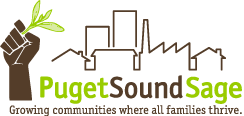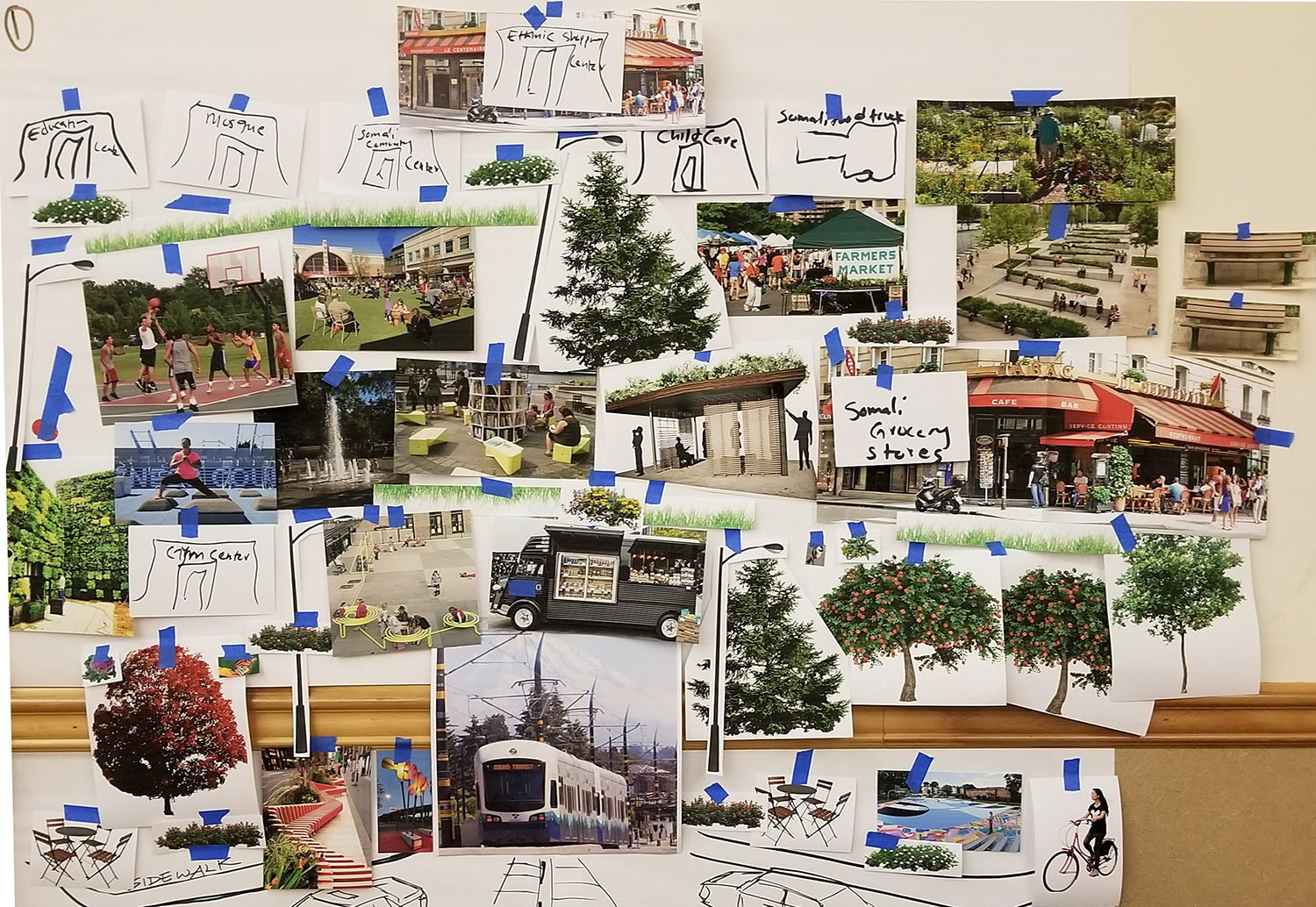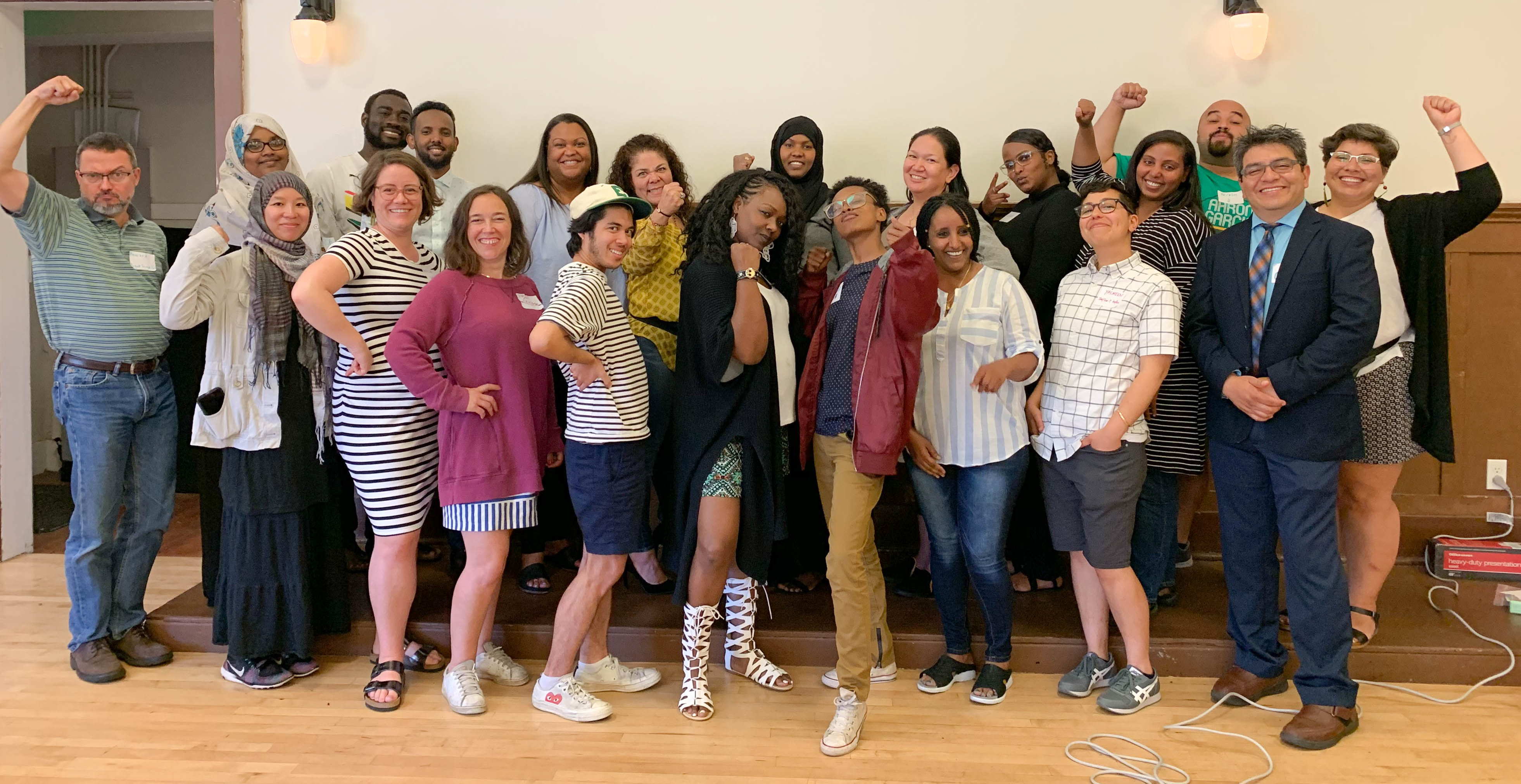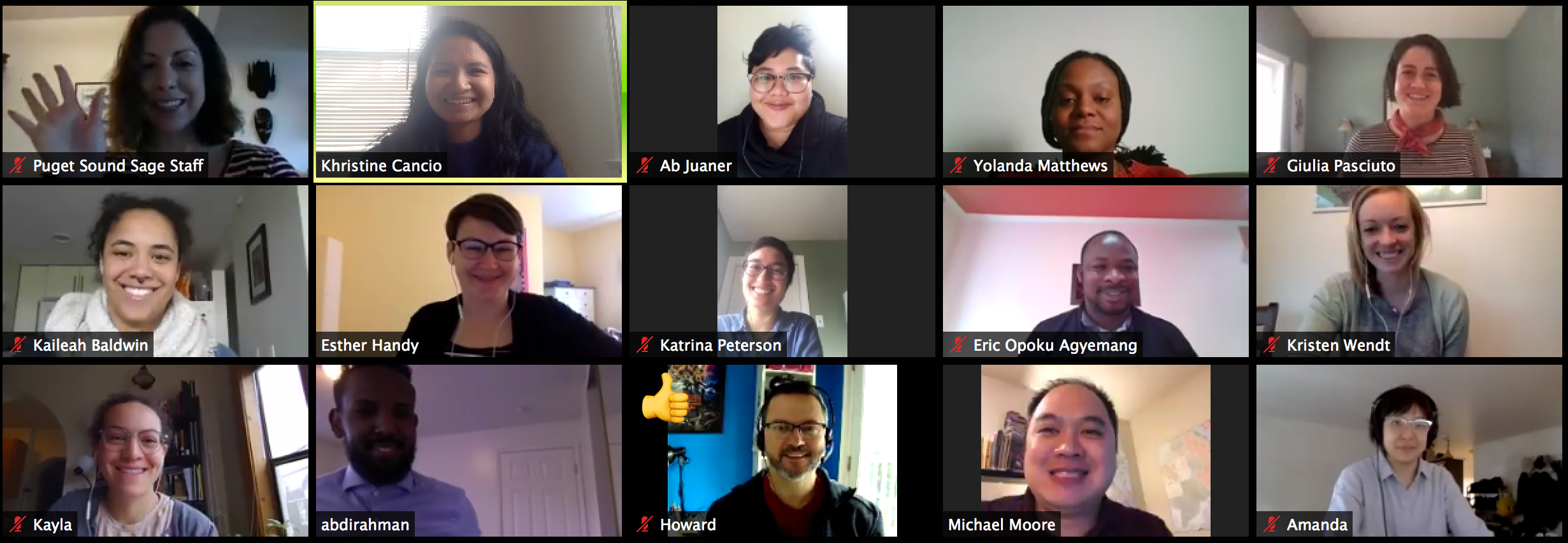Dear Sage Community,
In the midst of our rapid response to COVID-19, the Puget Sound Sage team took a moment to step back and reflect on what we stand for.
During this crucial time, we are inspired by our communities’ response to care for each other and protect the health of the most vulnerable.
We also know the brunt of the economic impact of these public health measures are being borne by those with the least capacity to weather layoffs, business closures and loss of childcare. These are the folks who have been surviving in an economy rigged against them, long before COVID-19 arrived – Black, Indigenous and people of color (BIPOC), immigrant and refugee communities, workers and low-income people, LGBTQ communities and people with disabilities.
The networks of mutual support that these communities are standing up in the face of another economic onslaught is a sign of their incredible strength. Together, they are knitting together systems of community resilience; these are the systems that will enable our communities to survive this crisis and are the systems that government and philanthropy must invest in, in order to emerge with a more regenerative, people-centered economy where our communities can thrive.
While we advocate for immediate safety nets to be put in place, we also have an eye on what comes next. In that context, Puget Sound Sage will insist on an economic recovery that shifts assets and power into the hands of Black, Brown and Indigenous communities, women, trans folks and workers. A transformative response to this pandemic will result in a transformed economy and society that benefits everyone.
In the short term we must:
- Follow the lead of BIPOC, immigrant and refugee communities, workers and low-income people, LGBTQ communities, and people with disabilities. Directly resource organizations led by and for these communities since they know how to best meet the needs of our communities. As a first step, Sage is spending time with all our community-based partners, leveraging our relationships to move funding in their direction.
- Government and funders must continue to meet immediate needs as defined by those most impacted – including changing policy, providing services, and directing financial resources. This starts with preserving medical benefits, halting evictions, preventing utility shut-offs and providing emergency income assistance.
- Prioritize the voice and rights of all workers, especially those deemed “essential” who require additional protections on the job, and workers in sectors devastated by layoffs and business closures. Seek guidance from unions, worker centers and organizations serving low-income Black, Brown and Indigenous workers, and workers with disabilities to identify priorities and solutions.
While we pivot our work to support the worst impacted communities, we invite everyone to strategize with us about the medium-term and long-term transformations we need.
This crisis has once again shown the vulnerabilities of our economy and the society that pit public health and well-being for all against individual wealth and security for the few. The unfolding economic impact of the public health response will exacerbate existing racial and economic inequalities. Individuals, businesses and corporations with power and money will have the tools for recovery and BIPOC, low-income, and people with disabilities will not.
We must start working today on policy and collective action that will lead to a true social safety net and move us towards a regenerative, people-centered economy. BIPOC, low-income, and people with disabilities must be at the center of these recovery and resiliency strategies.
The following priorities reflect the issues Puget Sound Sage has been working on for over a decade, but are by no means complete.
Working in partnership with government, community and philanthropy, we must:
- Invest in community organizing and power building. Radically transforming our economy requires broad and deep people power.
- Move land into community control and permanent affordability, in order to ensure housing is a human right, allow small businesses to thrive, and keep cultural institutions rooted in place.
- Transition to publicly-owned and accountable utilities which provide affordable, renewable energy for low-income households and ensure energy efficiency retrofits benefit all communities.
- Dramatically expand public transportation to connect our communities to work, health care, education, and each other while also reducing carbon emissions.
- Prioritize workplace democracy as central to a regenerative economy that creates resilience and prosperity for everyone.
- Resource community driven emergency preparedness and mutual-aid networks so that when other crises arise, we can respond immediately and care for our communities.
- Make large-scale new investments in public infrastructure that promote carbon emissions reduction, support good, family wage jobs, and provide a direct benefit to Black, Indigenous, people of color, low-income households, and people with disabilities.
- Approve new bold progressive revenue sources that fix Washington’s upside down tax code.
- Protect and strengthen existing policy and resources we have won – like the City of Seattle’s Equitable Development Initiative – funds that move us toward a regenerative economy, since these may appear to be the easiest to dismantle to fund emergency response.
This crisis is a moment to live our values.
It’s time to leave behind an economy that works for the few and step towards one that works for all of us. Our communities have the strength and wisdom to lead us out of this crisis. By investing in strategies of community resilience, we begin building that future.
We encourage you to join us in our mission.
In solidarity,
The Puget Sound Sage Team




